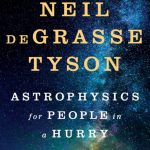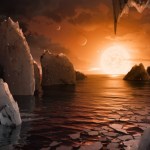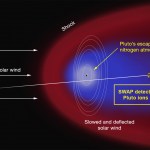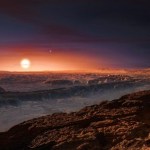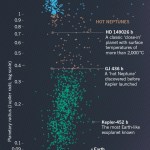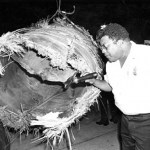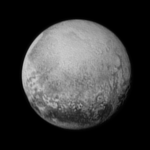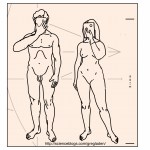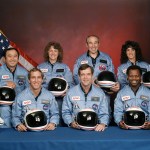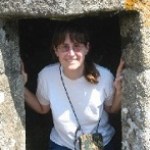Cosmos
These guys look like they are getting their bong ready, but in truth, they are up to something else. Everybody knows that neutrinos are everywhere, yet, nearly impossible to detect. A group of scientists have managed to pull off over 100 detection events over the course of about a year and a half using an entirely new method. From the abstract of their paper:
The coherent elastic scattering of neutrinos off nuclei has eluded detection for four decades, even though its predicted cross-section is the largest by far of all low-energy neutrino couplings. This mode of interaction provides new…
I've been enjoying Worlds Fantastic, Worlds Familiar: A Guided Tour of the Solar System by Bonnie Buratti.
Burratti is a planetary astronomer at NASA's JPL, and is the head of the Comets, Asteroids and Satellites Group. She was a key player in the Voyager program, and in the research done with the Cassini-Huygens, and New Horizons space ships.
Worlds Fantastic, Worlds Familiar: A Guided Tour of the Solar System is a personal exploration of what it is like to personally (via robots) explore our solar system, and at the same time, a systematic accounting of the solar system. The story is…
Astrophysics for People in a Hurry by NdGT is now available.
What is the nature of space and time? How do we fit within the universe? How does the universe fit within us? There’s no better guide through these mind-expanding questions than acclaimed astrophysicist and best-selling author Neil deGrasse Tyson.
But today, few of us have time to contemplate the cosmos. So Tyson brings the universe down to Earth succinctly and clearly, with sparkling wit, in tasty chapters consumable anytime and anywhere in your busy day.
While you wait for your morning coffee to brew, for the bus, the train, or…
As more and more exoplanets (at first) and earth-like exoplanets (eventually) have been discovered, the way thy are described to us has become increasingly sophisticated. Below are embeds of diverse video descriptions that have been very quickly developed and distributed given the freshness of this latest scientific discovery. Note that the practice of very clearly stating that a particular depiction of something that no human has ever seen, or will ever see, as being an artist's reconstruction has largely fallen by the wayside. Exoplanets are no longer physical features of the universe…
A Fortunate Universe: Life in a Finely Tuned Cosmos
This is a concept that has always fascinated me, ever since reading some stuff about the Periodic Table of Elements. Check it out:
Over the last forty years, scientists have uncovered evidence that if the Universe had been forged with even slightly different properties, life as we know it - and life as we can imagine it - would be impossible. Join us on a journey through how we understand the Universe, from its most basic particles and forces, to planets, stars and galaxies, and back through cosmic history to the birth of the cosmos.…
Did you ever notice that Pluto doesn't have much of a tail? No, not that Pluto! This Pluto:
This has been known for a while. NASA noted this last year:
New Horizons has discovered a region of cold, dense ionized gas tens of thousands of miles beyond Pluto -- the planet’s atmosphere being stripped away by the solar wind and lost to space. Beginning an hour and half after closest approach, the Solar Wind Around Pluto (SWAP) instrument observed a cavity in the solar wind -- the outflow of electrically charged particles from the Sun -- between 48,000 miles (77,000 km) and 68,000 miles (109,000…
In linguistic communication, a pattern generally emerges whereby the speaker or the listener (but not both) work extra hard to make the communication happens. This work (or lack thereof) consists of enunciation, use of contractions, various other things. You know about this because you make such adjustments all the time. When speaking to a child, or when speaking about your area of expertise but to a non-expert, etc., you not only use an adjusted vocabulary but also speak more clearly and maybe even more loudly; you end up doing more of the work than you would usually do.
Entire cultural…
Sometimes I think there are not abundant intelligent life forms wafting about the universe. We would see things in our careful, highly accurate, detailed looking at a sampling of the universe. But, I suppose we've only been scanning with super amazing instruments for a few years, and only scanning a small fraction of the universe. But certainly, in a decade or two we'll be able to say that radio-communicative or emitting intelligent life is either out there somewhere, or not likely to be. Absence of evidence will evolve into evidence for pessimism, at the very least.
Meanwhile we get these…
The star that is nearest our own has a planet that could be habitable by Earthlings.
This is very important news.
The news comes to us from this research paper in Nature: A terrestrial planet candidate in a temperate orbit around Proxima Centauri by Guillem Anglada-Escudé, Pedro J. Amado, John Barnes, Zaira M. Berdiñas, R. Paul Butler, Gavin A. L. Coleman, Ignacio de la Cueva, Stefan Dreizler, Michael Endl, Benjamin Giesers, Sandra V. Jeffers, James S. Jenkins, Hugh R. A. Jones, Marcin Kiraga, Martin Kürster, Marίa J. López-González, Christopher J. Marvin, Nicolás Morales, Julien Morin,…
Check out our detailed interview with the famous and amazing Ethan Siegel.
We talk about the history of understanding the universe, why you should believe in Dark Matter even though it is obviously fake, why exploring uranus can lead to the discovery of amazing things, and more.
There is little that is cooler than robots on mars doing science. Human space agencies have been sending probes to the surface of various planets (and the Moon) for years now, with the full range of failure and success. But the last decade or so has seen space robots such as Mars Curiosity Rover sciencing the shit, as they say, out of the planet Mars.
Emily Lakdawala, of the Planetary Society, is a planetary geologist and science communicator who knows a lot about driving rovers. It turns out that this is all very complicated, and when science gets big, expensive, high stakes, and…
First, what is a gravitational wave?
I find it interesting that some people are expressing difficulty in understanding what a gravitational wave is, as though everybody (who is not a physicist) has a perfectly good understanding of what any kind of wave is. We don't need to go too deeply beneath the surface, as it were, to understand this well enough to be amazed at the discovery, but not well enough to get a job being a Gravitational Waveologist.
Imagine a perfectly flat pond. Imagine throwing a stone out into the middle of the pond. Now imagine ripples, tiny waves, spreading out from the…
This month is the twentieth anniversary of the discovery of exoplanets, which are really just planets that are not in our solar system. (Frankly, I dislike the term exoplanet. It is so solarcentric.)
When you think about it, the discovery of planets outside our solar system (we need a word for that) is a special thing. On a graph of how expected and mundane a scientific discovery is vs. how exciting a scientific discovery is, these planets are distant outliers.
For years astronomers and cosmologists and others assumed that stars would generally have planets around them, or at least, this…
Skylab came up in conversation the other day. And then I ran into Amy Shira Teitel's video. So, naturally, a quick blog post.
Skylab was brought down, ultimately, by interaction with the upper reaches of the atmosphere, which was in turn made more likely by solar activity. But, both the nature and extent of solar activity of this type, and its effects on the atmosphere, were not understood when Skylab was being designed and deployed. Indeed, understanding this set of phenomena was a contribution made by Skylab science. Had Skylab been launched after, rather than before, this was better…
Short answer: Pluto has only two of the three necessary characteristics to be called a planet. Pluto has not cleared its neighborhood, or orbit. But, of course, there are additional details.
The simplest reason that Pluto is not a planet is that planet experts say so, and this is their job. But you may be looking for a more detailed explanation.
Let's look at what defines a planet. This could be a very long and tedious discussion, because "planet" is an ancient concept used long before scientists knew very much about them. Also, frankly, in many areas of science the definition of a thing,…
Remember the last Olympics, during the parade, where instead of seeing the athletes march along grouped by country, we saw unidentifiable people who were all either taking selfies or grabbing videos of everything going on around them, but we couldn't tell who they were because their cell phones were totally covering their faces? These days every time a thing happens and we see a pic or video of it, it seems, everybody else has got a cell phone in their face. I suppose that is how we manage to have pics or videos of everything that ever happens.
The above image is part of the plaque attached…
Suddenly and for the first time I saw Amanda as a little child wide eyed with both awe and fear, among other children some sitting on the floor, some in chairs, some standing behind desks, eyes trained on a TV monitor and their teacher as the sudden realization dawned on all of them that the Space Shuttle Challenger had been consumed in a fiery, deadly explosion.
The teacher on board seemed to have been incinerated before their very eyes. As the explosion developed, shooting out huge arms of smoke, and the voice-over began to acknowledge that something was wrong, NASA's space program was…
The ‘Nifty Fifty (times 4)’, a program of Science Spark, presented by InfoComm International, are a group of 200 noted science and engineering professionals who will fan out across the Washington, D.C. area in the 2014-2015 school year to speak about their work and careers at various middle and high schools.
Meet Nifty Fifty Speaker Dr. Erica Ellingson
Her research is key to shedding further light on how the cosmos began and its future development.
"My work focuses mostly on topics concerning the evolution of galaxies and quasars, and observational cosmology-- the origin,…
Watch the Orion test flight:
Splashdown:
Why is it great? Well, speaking as a Gemini (not my horoscope sign, but the space program going when I first gained sentience) ...
First, it is big, fast, cool looking. It actually looks like a rocket that might have been designed a decade before they ever actually made any rockets. It is almost Deco.
Second, they got a guy from the 1960s -- with that slightly, nasal, black and white voice people spoke in back then -- to call the race launch.
Third, Orion is really good at taking selfies.
Fourth, it didn't take long. The whole thing was like…
Have you heard the comet singing? From the Rosetta Blog this press release:
Rosetta’s Plasma Consortium (RPC) has uncovered a mysterious ‘song’ that Comet 67P/Churyumov-Gerasimenko is singing into space. RPC principal investigator Karl-Heinz Glaßmeier, head of Space Physics and Space Sensorics at the Technische Universität Braunschweig, Germany, tells us more.
Sound_comet2
Artist's impression of the 'singing comet' 67P/Churyumov-Gerasimenko. Credit: ESA/Rosetta/NavCam
RPC consists of five instruments on the Rosetta orbiter that provide a wide variety of complementary information about the…

